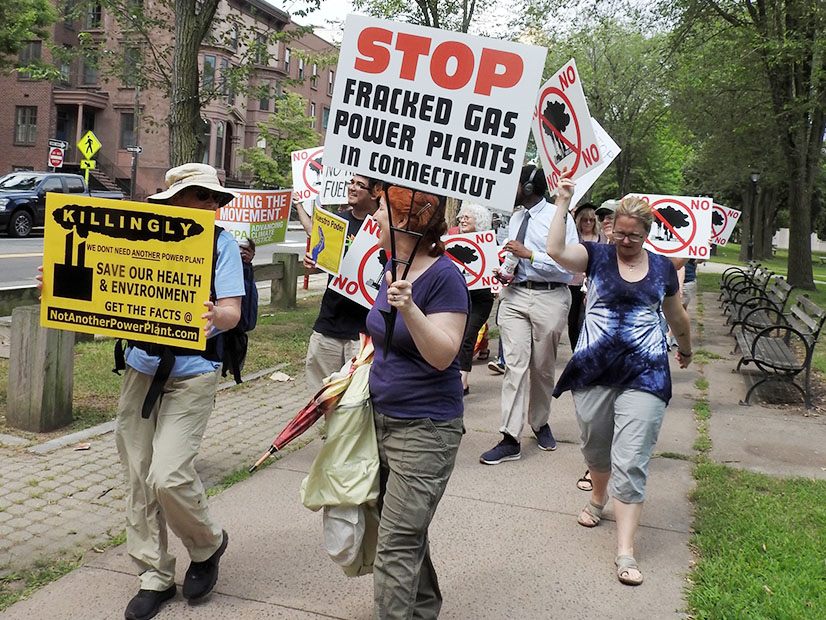
A divided Connecticut Supreme Court on Tuesday upheld a lower court decision to approve a new gas-fired power plant in the northeastern part of the state, dismissing a local environmental group’s complaint that the state’s siting body did not account for potential environmental damage from a needed expansion of a pipeline to deliver fuel.
The decision was a legal victory for NTE Energy, builder and developer of the 650-MW plant proposed for the town of Killingly, and Eversource Energy, which is expected to rebuild an existing pipeline to deliver gas to the facility.
Killingly-based group Not Another Power Plant contended that the Connecticut Siting Council (CSC) acted “improperly” in its siting decision when it “failed to consider the environmental impact of a gas pipeline that would have to be installed in the future to provide fuel to the facility.” Because the plant cannot operate without the pipeline, CSC should have considered the plant and pipeline concurrently.
Chief Justice Richard Robinson wrote that the lower court “correctly determined” that the CSC did not inappropriately “segment the project” because CSC must consider the environmental impact of the gas pipeline in a future proceeding and “NTE alone would bear the cost and risk if the pipeline is not approved.”
Concurrences and a Dissent
Justice Andrew McDonald wrote that while he concurred with the majority decision, he was not persuaded by its ultimate conclusion that the CSC was precluded “from considering an interdependent facility that does not yet exist when balancing the public benefit that will be provided by a proposed facility against the harm that it will cause to the environment.”
“Applications filed with the [CSC] are unusually technical and remarkably detailed, and the majority does not explain how the [CSC] should evaluate the probable environmental impacts of facilities for which it does not have that detailed information,” McDonald wrote.
McDonald added that, under Connecticut law, “it is improper” to consider nonexistent facilities “that may or may not be the subject of future applications … by completely separate applicants.”
“The majority opinion undermines the legislature’s choice by extending the authority of the council to permit consideration of nonexistent, hypothetical facilities when evaluating a proposed facility,” McDonald said.
McDonald concluded that “segmentation of applications for interrelated facility projects … are policy decisions for the legislature to make, not this court.”
Justices Steven Ecker and Gregory D’Auria concurred with part of the ruling but also dissented with another portion. They said the lower court decision should be reversed with the direction that the CSC reconsider its approval of NTE’s application and consider the potential environmental impact of the future Eversource gas pipeline.
Reaction
NTE Managing Partner for Development Tim Eves told RTO Insider the company “has adhered to Connecticut’s stringent development and regulatory process” since it gained certification from the CSC in 2019.
“The court’s decision reaffirmed the rigorous environmental regulatory review process the facility passed in order to receive CSC certification, and we look forward to supporting Connecticut’s transition to a renewable energy future,” Eves said.
When asked for a reaction to the ruling, a spokesperson for the Department of Energy and Environmental Protection (DEEP) said that the agency issued a final decision on Jan. 20 for the permit to discharge to the sewer, which authorized NTE to submit final construction plans and specifications of the wastewater facility. The permit will be issued after the approval of those plans. DEEP added that the comment period has closed on Eversource’s Water Quality Certification application for the pipeline. DEEP is in the process of reviewing the comments.
The Connecticut Attorney General’s office, through its spokesperson, said it “defers to the written record.” ISO-NE did not have any comment on the ruling.


